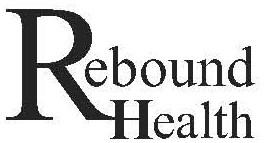Newsletter - The Food Supply - Bill C-474 |
 |
PDF Version
Who owns food?
Who ever owns the patent. All GMO seeds are patented. GMOs cross breed and insert the patent gene. This cannot be reversed. Over time all food could become privately owned.
How much will it cost?
It will be up to the owner. Monsanto owns about 90% of the GMO seeds now. The number of non-GMO seeds are disappearing quickly. In Mexico they cannot find any non-GMO corn left.
Can Anyone patent food?
Yes, anyone can patent. The patent office allows any living organism to be patented except a live birth human. Plants and animals can be patented legally since 1980.
Do Non-Human Organisms have rights?
Report of the Federal Ethics Committee on Non-Human Biotechnology ECNH, May 2010.
Summit of National Bioethics
Singapore, 27 July 2010
Dignity of living beings.
Below are films to watch
We at Rebound Health feel compelled to pass on information about these food issues because food affects our health.

We encourage more discussion on food issues and that laws reflect individual needs rather than person-corporate profit.
Rebound Health.
Monsanto owns 90% of all GMO seeds.
The National Film Board of Canada. An Arte France Image & Compagnie, presentation:
The World According to Monsanto P1/10
Stop Organinic Farming
The Bills in the US are HR875 and S425 to restrict organic farming.
In India:
Monsanto owns all the cotton and charges 4X the going price for seeds. The GMO plants are destroying other crops. Small farms face extinction.
The World According to Monsanto P8/10
All corn found with GMO DNA. Mexican farmers told that they do not own their crops.
The World According to Monsanto P9/10
Green Deserts of GMO crops.
Plant life in the next field is killed by the sprays required for GMOs to grow.
Own the rain.
In Brazil public protest stopped rain water from being privately owned through patent.
Tesco is a UK supermarket that hires all available politicians. This way they know how to influence future government decisions.
Tesco vs Denmark
Rebound Health
www.reboundhealth.com
Withour prejudice.
All rights reserved.
|
Bill C474, Feb 11/11
A Global Debate
Canada is a major supplier of food to the world. The Canadian people and their government are concerned about food safety while facing tremendous pressure from foreign corporations to make changes in the laws of the food supply. A Minister introduced a Bill to protect the safe supply but are facing tremendous pressure from corporations to legaly take over this supply from Canada.
A Private Members Bill:
HOUSE OF COMMONS
OF CANADA
Bill C-474
Seeds Regulation Act; An Act respecting the Seeds Regulations (analysis of potential harm)
Introduced March 10,2010.
Status of the bill
Last House discussion February 9, 2011.
The CTV National News:
Canadian Sovereignty under attack
Background:
The Canadian Government has been attempting to make our food supply safe from profiteers and in the control of the public.
The outcome of these legal issues will affect all of our lives and especially future life on the planet.
Select House discussions February 8, 2011:
Ms. Jean Crowder (Nanaimo—Cowichan, NDP):
The bill asks that we “amend the Seeds Regulations to require that an analysis of potential harm to export markets be conducted before the sale of any new genetically engineered seed is permitted”.
Hon. Mark Eyking (Sydney—Victoria, Lib.):
Canadian citizens want to have safe and healthy food.
Bill C-474 is not an anti-GMO bill, but that is how it is evolving here, into whether or not one is for or against GMOs. That is not what it is all about; it deals how we should be producing more crops in this country in a safe manner.
Hon. Larry Bagnell (Yukon, Lib.)
“The simplicity of this bill is what scared everyone”.
Mr. Peter Julian (Burnaby—New Westminster, NDP):
[Bill C-474] a bill that the Conservatives, quite frankly, wanted to destroy as soon as the lobbyists from big biotech told them to destroy it.
The reality is that the bill calls for something that should be in place already, but what we have seen from big biotech is an hysterical, inappropriate and irresponsible reaction to what is just common sense.
Mr. Malcolm Allen (Welland, NDP):
What we have with GMOs are specific genes doing specific things that enable a specific company to make money.
What happens if they decide, because they have a somewhat semi-monopoly on that now, to change that again and change the make-up and composition of that because, as we see things evolving even further, the genetics can change?
Patents on
plants and animals
The possibility of patenting inventions based on living organisms is a hotly debated topic, among the general public as well. An initial consultation procedure for a partial revision of the Patents Act was carried out in April 2002. Because of the very divisive responses, a second consultation was held in 2004.
The 8th Global Summit of National Bioethics Advisory Bodies
Suntec Singapore International Convention Center, July 26 – 27, 2010
Full Text
Is it really safe for a company to own our food?
The film; Food, Inc explores gas ripe fresh tomatoes, meat with no bones, etc., food from a factory assembly line rather than a farm.
Companies want to control the food from the seed to the market. Is this good for humans?
Swiss National Advisory Commission on Biomedical Ethics.
National and international links
Economic Hitmen. Two minute cartoon. I think of Alberta when I watch this.
|
|

